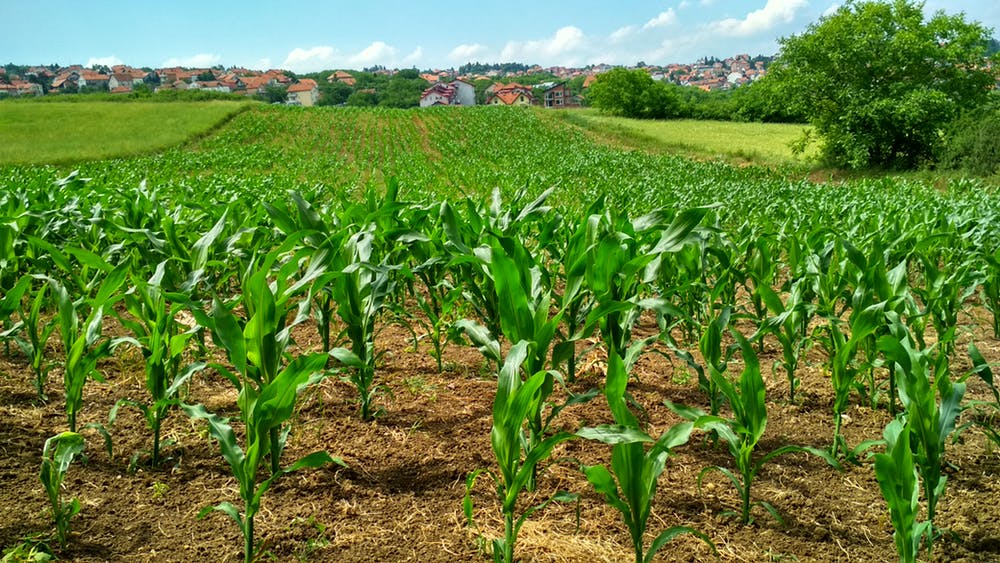April 8, 2020
We first published a story by Ocean Park, a leading boutique investment bank focused on the renewable fuels, energy, food, agtech, and agribusiness sectors, in GAI News Agtech Intel in June 2019: Agtech: Investment Trends to Watch in a Blooming Industry. Clearly of interest — the piece made the Top Five Most-Read AgTech Intel Stories of 2019 — the details and facts on the latest goings-on resonated with our readers. We are grateful to have this exclusive coverage of the second agtech update from Ocean Park’s managing directors. Note that in its analysis of agtech, Ocean Park classified it into four segments: Plant Health and Nutrition, Animal Health and Biology, Equipment and Data, and Food Technology, the highlights of which are addressed below.
By John Campbell and Eric Ouyang, Ocean Park
Overall agtech investment in the United States slowed slightly in 2019 but remained strong and near five-year peaks.
Boom in Food Technology. The Food Technology segment flourished as the segment saw the most rapid growth from the prior year resulting from increased investor interest in plant-based meat substitute companies.
Rebound in Mergers & Acquisitions. Another optimistic note from 2019 was the significant rebound in M&A transactions from a five-year low in 2018. A plethora of new buyers entered the M&A market as all completed transactions during the year featured acquirers who did not make a purchase in the past five years.
Farmers Face Uncertainty. Farmers and ranchers continued to face income headwinds due in part to adverse weather, ongoing trade conflicts, and now the coronavirus. Although the Trump Administration has provided significant income assistance to farmers, future economic uncertainty has translated into reduced capital improvements at the farm and limited adoption of new agricultural equipment and technology.
Fight Against Climate Change. Climate change has been partly attributed to a multitude of agricultural processes. Today we see a shift in investment and operational strategies that view agriculture not as a problem, but as a solution to climate change. A new focus on regenerative, carbon negative agricultural practices and technology has begun. There is growing awareness that row crop, rangeland, and forestry lands in the United States have enormous potential for carbon capture and sequestration. Importantly, these technologies and practices offer solutions on a scale necessary – and unavailable elsewhere – to address the immediate need to reduce greenhouse gas loading in the atmosphere. Green technologies supporting this effort are embedded across our agtech database.
Top Agtech Trends to Watch
1). Increased M&A Activity. The biggest takeaway from 2019 was the rebound in M&A over the prior year resulting from the return of financial buyers. In 2019, there were 28 transactions totaling over $1.6 billion in value, a significant increase over the 20 transactions across $0.2 billion in 2018.
2). The Rise of Problem Solvers. One criticism we hear is that too many companies offer solutions in search of a problem. Producers report being overwhelmed by vendors offering the latest technologies without really understanding the situation on the ground. At the macro level, the agtech industry understands that the problems of sustainability, pesticide and herbicide resistance, antibiotic replacement, and farm level productivity need solutions but early adopters are often weary of trying new products.
3). An Increasingly Diverse Landscape. Since 2015, 278 agtech companies have raised $6.0 billion of private capital across 467 transactions in the U.S. Plant Health and Nutrition has attracted the most investment, with 146 deals raising $2.2 billion, or 38 percent of all capital raised.=
4). Robust Capital Raising Activity. Agtech funding experienced substantial growth over the last five years, increasing from $692 million raised in 2015 to $1.3 billion in 2019, which represents a 13 percent compound annual growth. Much of the funding is aimed at disruptive technologies in the production, supply chain and consumption of food.
5). Larger Deal Sizes. The average agtech capital raise has doubled in size from $6.5 million in 2015 to $13.3 million in 2019, with food technology companies averaging the highest deal size at $18.4 million during the five-year period. Since 2015, there have been 138 transactions larger than $10 million raised by 86 agtech companies. Plant Health and Nutrition had the most transactions (44 total) with deal sizes greater than $10 million. The average deal size is skewed by a few large transactions; excluding the top three transactions in each segment, the average deal size is $11.3 million since 2015.
6). Diverse Investor Base. Since 2013, 248 institutional investors, including venture capital firms and family offices, have bet on agtech with capital raise transactions larger than $10 million in size. Of note, more than 67 percent of those investors have participated in only a single transaction in agtech to-date. The 10 most active venture capital firms have made 133 agtech investments since 2013.
For the full report, click here.
ABOUT THE AUTHORS
 John Campbell serves as managing director of Ocean Park with three decades of experience in the food and agribusiness sector. He has extensive operating experience among many aspects of the ag and food supply chain, including livestock and crop production, grains, feed, soybean processing, vegetable oil refining, ethanol and biodiesel. Campbell spent over 20 years managing the Industrial Products division of Ag Processing (AGP), a multibillion-dollar value-added soybean cooperative and biodiesel producer. He also served as Deputy Undersecretary of Agriculture during the George H.W. Bush Administration. He received his BA in Animal Science from the University of Nebraska and his post graduate Diploma from the University of Sydney, Australia in Agricultural Economics.
John Campbell serves as managing director of Ocean Park with three decades of experience in the food and agribusiness sector. He has extensive operating experience among many aspects of the ag and food supply chain, including livestock and crop production, grains, feed, soybean processing, vegetable oil refining, ethanol and biodiesel. Campbell spent over 20 years managing the Industrial Products division of Ag Processing (AGP), a multibillion-dollar value-added soybean cooperative and biodiesel producer. He also served as Deputy Undersecretary of Agriculture during the George H.W. Bush Administration. He received his BA in Animal Science from the University of Nebraska and his post graduate Diploma from the University of Sydney, Australia in Agricultural Economics.
 Eric Ouyang serves as managing director of Ocean Park with nearly two decades of investment banking experience. He has successfully completed over $50 billion of strategic advisory and capital raising transactions across a wide range of industries, including agtech, agribusiness, biofuels, consumer products, food and renewable energy. Ouyang previously worked at Goldman Sachs in Los Angeles and New York, where he focused on financial sponsors, leveraged finance, financial institutions, and financial technology. He received his BA from the Woodrow Wilson School of Public and International Affairs at Princeton University.
Eric Ouyang serves as managing director of Ocean Park with nearly two decades of investment banking experience. He has successfully completed over $50 billion of strategic advisory and capital raising transactions across a wide range of industries, including agtech, agribusiness, biofuels, consumer products, food and renewable energy. Ouyang previously worked at Goldman Sachs in Los Angeles and New York, where he focused on financial sponsors, leveraged finance, financial institutions, and financial technology. He received his BA from the Woodrow Wilson School of Public and International Affairs at Princeton University.
ABOUT OCEAN PARK
Ocean Park, located in Los Angeles, California, is a leading boutique investment bank focused on the renewable fuels, energy, food, agtech, and agribusiness sectors. oceanpk.com
This material is solely for informational purposes. The information in this document does not constitute an offer to sell, or a solicitation of an offer to purchase, any security or to provide any investment advice.
DISCLAIMER: All views, data, opinions, and declarations expressed are solely those of the author(s) and not of Global AgInvesting, GAI News, GAI Gazette, or parent company HighQuest Group.

Let GAI News inform your engagement in the agriculture sector.
GAI News provides crucial and timely news and insight to help you stay ahead of critical agricultural trends through free delivery of two weekly newsletters, Ag Investing Weekly and AgTech Intel.




